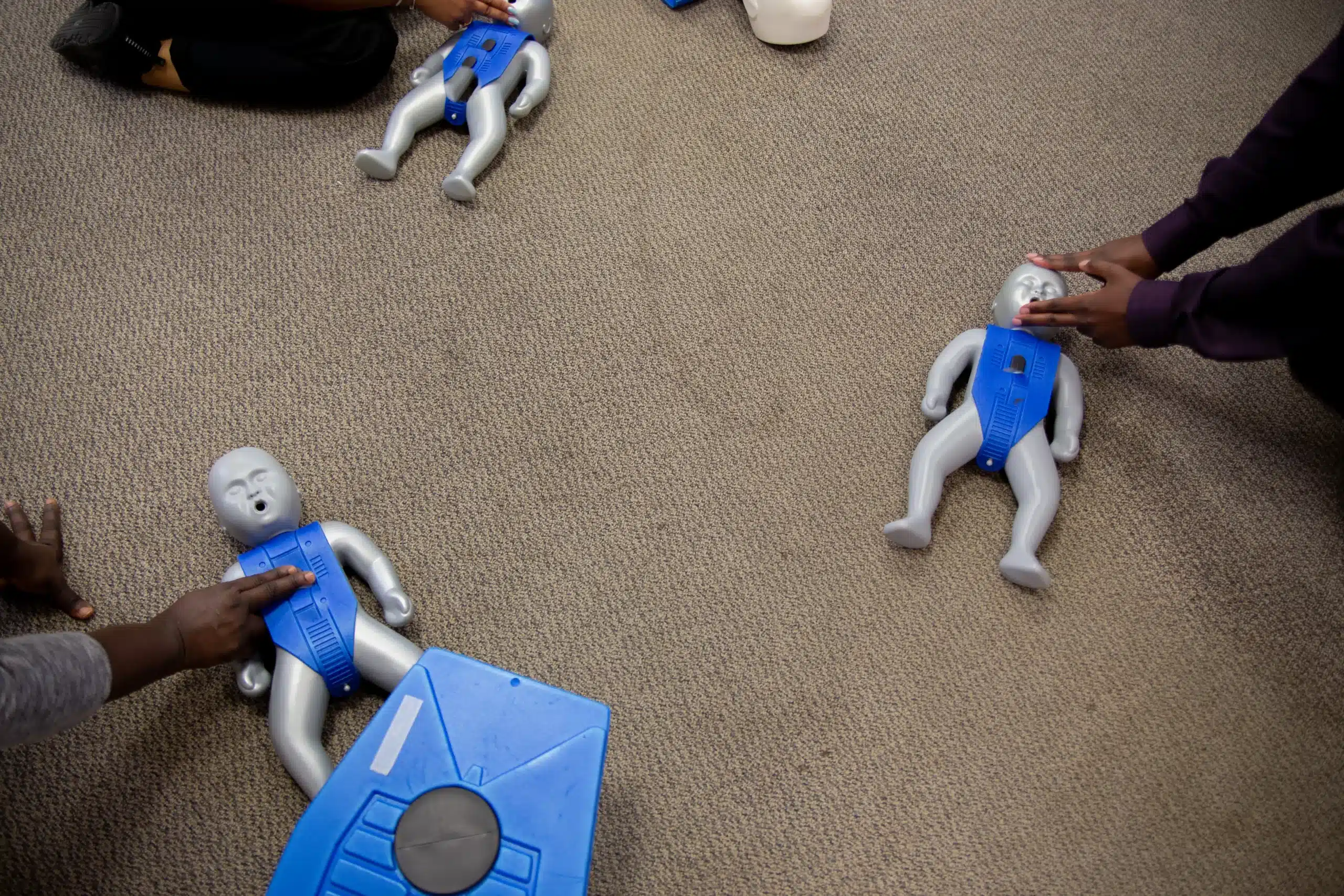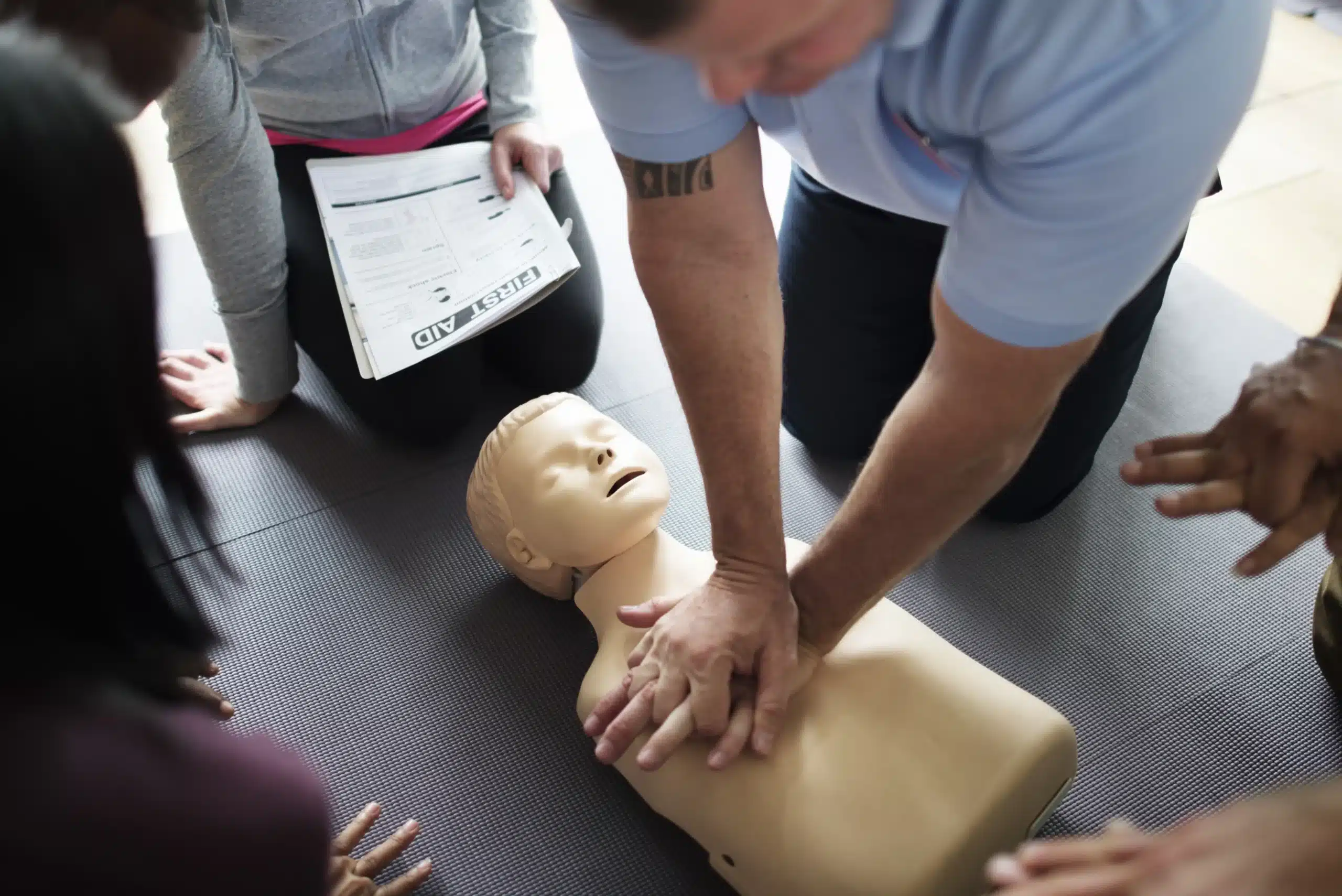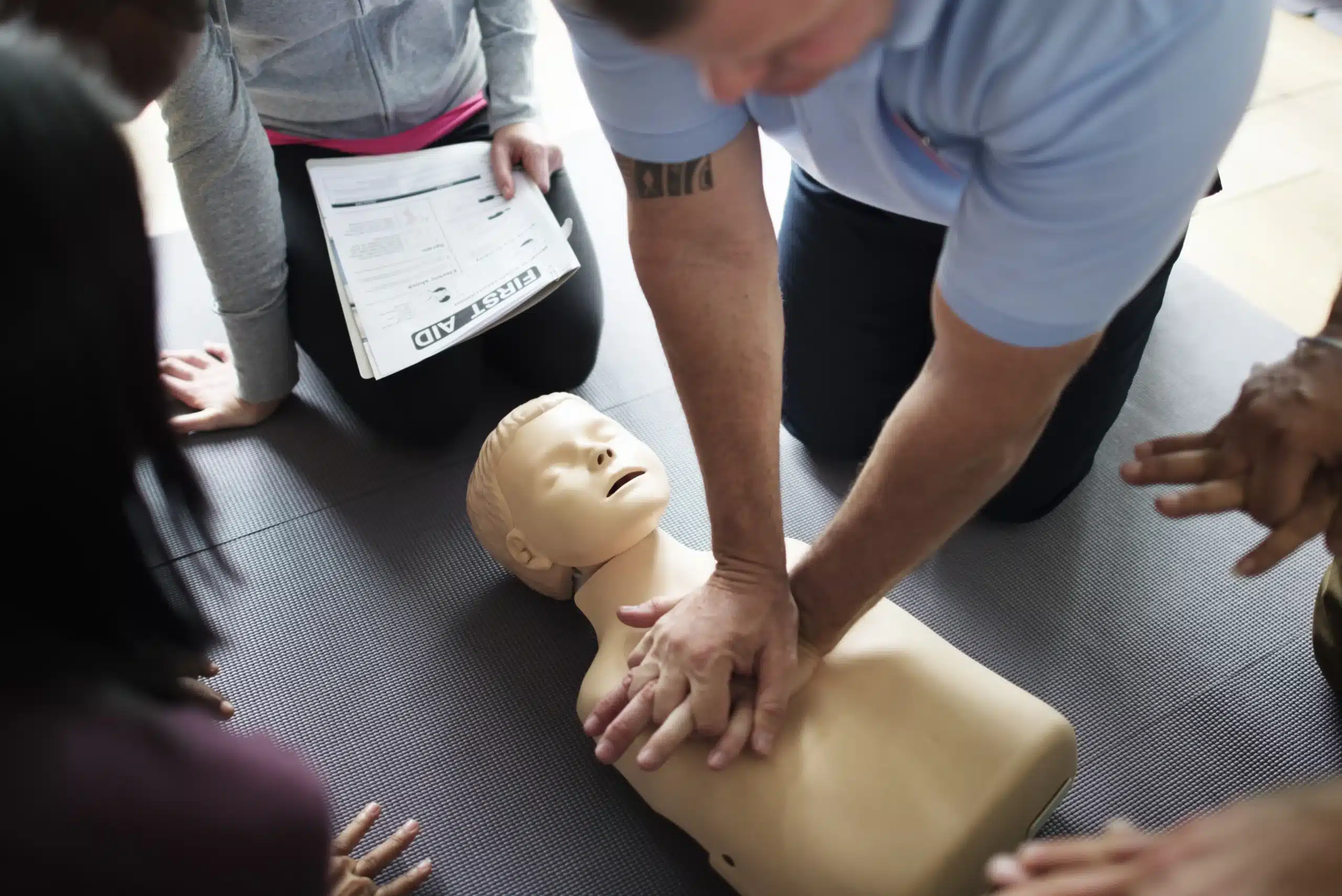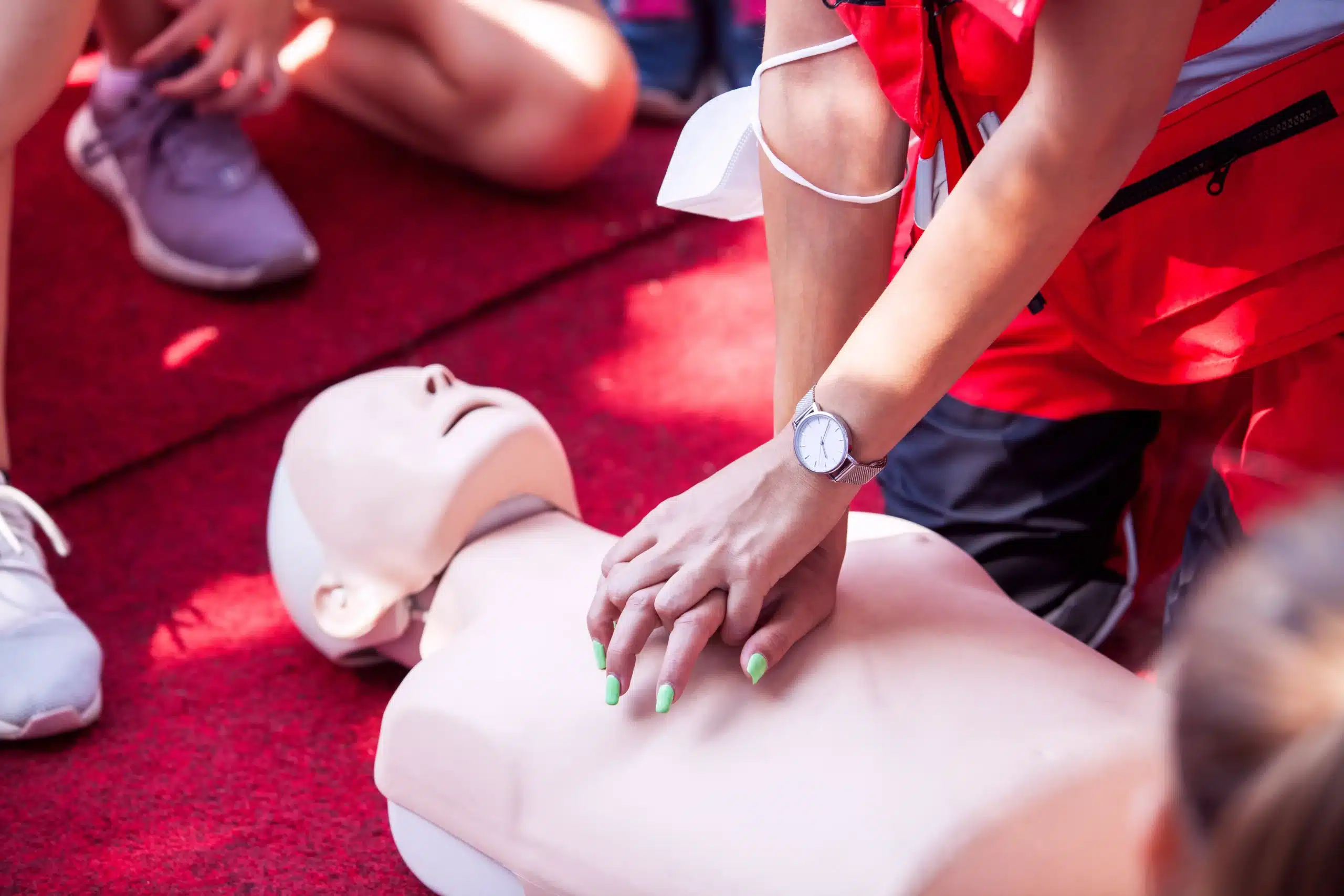Juggling work, family, and, you know, life makes it hard to squeeze in extra training, especially something as important as PALS certification. But what if you could learn life-saving pediatric advanced life support skills on your own time, from the comfort of your couch? That’s the beauty of online PALS classes in Menlo Park. They offer the same rigorous training as traditional courses but with the flexibility to fit your busy schedule. In this post, we’ll explore everything you need to know about online PALS classes, from what to expect in the course to how it can boost your career. We’ll also cover top providers in Menlo Park, cost considerations, and what to look for in a qualified instructor. Ready to empower yourself with life-saving skills? Let’s get started.
Key Takeaways
- Online PALS classes fit your busy schedule: Balance work, family, and other commitments with the flexibility of online and blended learning options. You’re in control of your learning pace, making it easier to gain these essential skills.
- PALS certification strengthens your skills and opens career doors: Become more confident in your ability to respond to pediatric emergencies, improve teamwork communication, and increase your career prospects with this valuable credential.
- Choosing the right PALS course requires careful consideration: Think about your preferred learning style, the course format that suits you best, the instructor’s experience, and the total cost, including any available discounts. Research different providers to find the perfect fit.
What are online PALS classes?
Online PALS (Pediatric Advanced Life Support) classes offer a convenient and flexible way to develop the skills needed to respond to pediatric emergencies. Unlike traditional in-person classes, online PALS courses let you learn at your own pace, fitting the training around your schedule. These courses typically combine online modules with in-person skills sessions and often incorporate interactive elements like videos, simulations, and quizzes to reinforce learning. This blended learning approach allows you to study the material whenever and wherever it suits you best, while still providing the crucial hands-on practice needed for real-world scenarios. For busy professionals, parents, or anyone juggling multiple commitments, online PALS classes offer an accessible path to gaining these life-saving skills.
Key PALS training components
PALS certification goes beyond basic life support (BLS) and focuses on the specific needs of infants and children. The course covers essential skills, from recognizing and managing respiratory distress and shock to handling cardiac arrest situations. You’ll learn how to interpret pediatric ECGs and develop effective teamwork strategies for successful resuscitation. This specialized training equips healthcare providers, childcare professionals, and other individuals who work with children with the knowledge and confidence to respond effectively in critical situations.
Benefits of online PALS certification
Online PALS certification offers several advantages. The flexible schedule allows you to learn at your own pace and complete the course without disrupting your work or personal life. Beyond the convenience, PALS training significantly improves patient outcomes and enhances team communication during pediatric emergencies. It’s a valuable investment in your career, demonstrating your commitment to providing high-quality care. Whether you’re a medical professional seeking career advancement or a childcare provider wanting to enhance your skills, PALS certification provides a practical and effective way to gain essential knowledge and expertise. Redwood City CPR Classes offers a low price guarantee on all its courses.
Top online PALS Class Providers in Menlo Park
Finding the right Pediatric Advanced Life Support (PALS) class can feel overwhelming, but several excellent providers in Menlo Park make it easier. Whether you’re looking for a blended learning experience or a completely online option, this list highlights some top choices to help you get started.
Redwood City CPR Classes
Redwood City CPR Classes offers a variety of lifesaving courses, including PALS. Their experienced instructors provide comprehensive training, essential for healthcare providers working with children. They focus on practical skills and real-world scenarios, giving you the confidence to respond effectively in pediatric emergencies.
Safety Training Seminars
Safety Training Seminars is another excellent option for PALS certification. As an AHA and EMSA-licensed provider, they offer training designed to equip healthcare professionals with the skills to respond effectively to pediatric emergencies. Their courses cover everything from basic life support to advanced techniques.
Stanford Medicine
Stanford Medicine provides a two-day PALS Provider course, essential for healthcare providers who assess and treat seriously ill or injured children. Known for its high-quality training and comprehensive curriculum, Stanford Medicine offers a rigorous and respected PALS certification.
CPR Plus
CPR Plus offers a range of certification classes, including PALS, BLS, ACLS, and NRP. Designed for healthcare professionals and taught by experienced instructors, their courses ensure participants gain the necessary skills and knowledge. CPR Plus is a great option if you’re looking for a provider offering various certifications.
American Heart Association Training Centers
Various American Heart Association Training Centers in Menlo Park offer PALS training, ensuring healthcare providers have access to high-quality education and certification in pediatric advanced life support. Checking with your local AHA Training Center can open up several convenient options.
What will you learn in an online PALS course?
Online PALS courses equip healthcare providers with the essential skills to manage pediatric emergencies. From assessment to resuscitation, you’ll gain practical experience and knowledge to handle critical situations with confidence.
Pediatric emergency assessment
In an online PALS course, you’ll learn to quickly and accurately assess pediatric emergencies. This includes recognizing life-threatening conditions beyond basic life support (BLS). You’ll develop skills to evaluate a child’s condition, prioritize interventions, and make informed decisions under pressure. This rapid assessment is the first step toward effective treatment. PALS certification provides comprehensive training in these areas.
Resuscitation techniques and airway management
Airway management and resuscitation techniques are critical parts of PALS training. The course covers essential procedures for managing respiratory distress, shock, and cardiac arrest in infants and children. You’ll also learn to interpret pediatric ECGs, a crucial skill for diagnosing and treating heart-related emergencies. These skills are vital for stabilizing a child and ensuring the best possible outcome.
Team dynamics in emergencies
Effective teamwork is essential during pediatric emergencies. PALS training emphasizes clear communication and coordinated efforts among healthcare professionals. You’ll learn strategies for working effectively within a team, ensuring everyone works towards a common goal. This collaborative approach can significantly improve patient outcomes. For those in the Menlo Park area, Redwood City CPR Classes offers PALS training.
Hands-on practice and simulations
Online PALS courses incorporate hands-on practice and simulations to reinforce learning and build practical skills. While the course material provides essential knowledge, the hands-on component lets you apply what you’ve learned in a simulated environment. This practical experience is invaluable for preparing you to respond effectively in real-life emergencies.
How much do online PALS classes cost?
Understanding the cost of online PALS classes is an important step in choosing the right course. Let’s break down the typical price range, explore potential discounts, and look at the added value of continuing education credits.
Typical price range and fees
Online Pediatric Advanced Life Support (PALS) courses in Menlo Park typically cost around $300. This price usually covers online learning materials, access to the course platform, and the PALS certification exam. Remember that prices can vary slightly between providers, so it’s always a good idea to check with specific training centers like Redwood City CPR Classes for their current pricing.
Group discounts and promotions
One way to make PALS certification more affordable is to leverage group discounts. Many providers, including Redwood City CPR Classes, offer reduced rates for groups enrolling together. This can be a smart choice for healthcare teams, companies, or even groups of friends looking to get certified or recertified. Some employers also offer reimbursement for PALS training, so check with your HR department to see if this benefit is available. Also, keep an eye out for promotions that can lower the overall cost.
Continuing education credits
Beyond the certification itself, many online PALS courses offer continuing education credits (CEUs). These credits can be valuable for maintaining professional licenses and certifications, especially in healthcare. Some PALS courses provide 14 California Board of Registered Nursing (BRN) continuing education credits. Earning these credits while completing your PALS certification adds extra value to your training. You can often find information about CEUs on course descriptions, like this example of a PALS Provider course.
What qualifies PALS instructors?
Choosing the right PALS instructor is just as important as choosing the right course. A qualified instructor can make all the difference in your learning experience. Here’s what to look for:
Certifications and professional background
PALS certification is crucial for healthcare providers working with children, equipping them to handle life-threatening emergencies. It goes beyond basic life support (BLS). Your instructor should be certified by the American Heart Association (AHA) and ideally have a strong medical background. This ensures they possess the most current knowledge and practical experience to teach the course effectively. Look for instructors actively working in healthcare settings, as this keeps their skills sharp and relevant. A background in pediatrics, emergency medicine, or intensive care is a definite plus. Pediatric Advanced Life Support (PALS) training emphasizes this.
Teaching experience and expertise
Beyond certifications, look for an instructor with proven teaching experience. Consider how long they’ve been teaching PALS and whether they have testimonials or reviews from previous students. A skilled instructor can break down complex concepts into easy-to-understand information, create a supportive learning environment, and provide constructive feedback. Hands-on practice and simulations are vital components of PALS training, so choose an instructor who emphasizes these practical applications. Ask about their teaching style and how they incorporate interactive elements into their courses. Choosing a PALS course requires careful consideration of the instructor’s experience.
Student support and interaction
A good PALS instructor provides ongoing support and encourages interaction. They should be available to answer questions, clarify concepts, and offer guidance throughout the course. A smaller class size can often lead to more personalized attention and create opportunities for interaction with the instructor and fellow students. Consider whether the instructor offers additional resources, such as practice materials or online forums, to support your learning beyond the classroom. A responsive and supportive instructor can significantly enhance your learning experience and help you build confidence in your PALS skills.
Choose the right online PALS class format
Finding the right online PALS class means considering several factors. Think about your learning style, how much time you have, and your tech setup. Let’s break down the key things you should keep in mind when making your decision.
Fully online vs. blended learning
Online PALS courses offer a lot of flexibility. You can work through the material at your own pace and revisit topics as needed. Many online courses incorporate real-world scenarios and varied practice opportunities to make learning more engaging and effective. Some providers offer a fully online option with a separate in-person skills session. This blended learning format lets you learn the material online and then demonstrate your skills in a practical setting. A fully online course may be a good fit if you prefer self-directed learning and have a busy schedule. Blended learning might be a better choice if you value hands-on practice and interaction with an instructor.
Schedule flexibility and course duration
One of the biggest advantages of online PALS courses is the flexibility they offer. You can often find classes that fit around your work or family commitments. Redwood City CPR Classes, for example, offers daily courses, giving you plenty of options. Course duration can vary, but many online PALS courses can be completed in just a few hours. Consider how much time you realistically have to dedicate to the PALS course and choose a format that aligns with your schedule.
Technical requirements and platform accessibility
Before you sign up for an online PALS class, make sure you have the necessary technology. This typically includes a reliable internet connection, a computer or tablet, and sometimes a webcam and microphone for skills testing. Check with the course provider about specific technical requirements. Also, consider the accessibility of the online platform. Is it easy to use and understand? Can you access the online CPR training from different devices? A user-friendly platform will make your learning experience much smoother.
How will PALS certification impact your career?
Earning your Pediatric Advanced Life Support (PALS) certification is a significant step, especially if you work with children. It demonstrates your dedication to providing excellent care and can create new opportunities. Let’s explore how PALS certification can positively impact your career.
Improve your emergency response skills
PALS certification goes beyond basic life support (BLS) training. It equips you with the advanced knowledge and skills to confidently handle pediatric emergencies. You’ll learn to quickly assess a child’s condition, make critical decisions under pressure, and provide specialized interventions. This enhanced skill set improves the quality of care you deliver and increases your value as a healthcare professional. For more information on PALS, take a look at this helpful resource.
Advance your career
Many healthcare facilities require PALS certification, especially for roles involving direct patient care for infants and children. Holding a PALS certification can give you a competitive edge when applying for jobs and may be a prerequisite for some positions. The advanced training also boosts your confidence and improves your communication within a medical team, further enhancing your career prospects. Consider PALS training an investment in your professional growth.
Certification validity and renewal
Your PALS certification is valid for two years. To maintain your certification and stay current with the latest guidelines, you’ll need to renew it through a PALS renewal course every two years. This ensures your skills remain sharp and you continue providing high-quality care. It’s a continuous learning process that benefits both you and the children in your care.
Related Articles
- Online PALS Classes in Redwood City: A Complete Guide
- Pediatric Advanced Life Support (PALS) in Palo Alto – Redwood City CPR Classes
- PALS HeartCode Palo Alto: Your Certification Guide – Redwood City CPR Classes
- Advanced Cardiac Life Support (ACLS) in Menlo Park – Redwood City CPR Classes
- Pediatric CPR & First-Aid Classes in Palo Alto CA
Frequently Asked Questions
What’s the difference between PALS and BLS?
BLS (Basic Life Support) teaches fundamental life-saving techniques applicable to anyone, while PALS (Pediatric Advanced Life Support) builds upon those basics, focusing specifically on the specialized needs of infants and children. PALS delves deeper into pediatric assessment, airway management, and resuscitation techniques tailored for younger patients. It’s designed for healthcare providers, childcare professionals, and others regularly working with children.
How long does it take to get PALS certified?
The time commitment for PALS certification varies depending on the course format and provider. Blended learning courses, combining online modules with in-person skills sessions, often take less time overall. Fully online courses offer more flexibility, allowing you to complete the coursework at your own pace, but still require an in-person skills checkoff. Many providers offer courses that can be finished in a day or two.
Is online PALS certification accepted everywhere?
Online PALS certification from a reputable provider, such as an AHA (American Heart Association) Training Center, is widely accepted. However, it’s always a good idea to confirm with your employer or licensing board to ensure the specific online course you’re considering meets their requirements. Look for courses that include a hands-on skills assessment component, as this is often a requirement for certification.
How often do I need to renew my PALS certification?
PALS certification is typically valid for two years. To maintain your certification and stay up-to-date with the latest guidelines and best practices, you’ll need to complete a PALS renewal course before your current certification expires. Renewal courses often cover updates in treatment protocols and reinforce essential skills.
What if I don’t work in healthcare, can I still take a PALS course?
Absolutely! While PALS is often associated with healthcare professionals, anyone who works with or cares for children can benefit from this training. Teachers, coaches, camp counselors, parents, and other caregivers can gain valuable skills and confidence in responding to pediatric emergencies. PALS certification provides essential knowledge and practical skills applicable in various settings.






